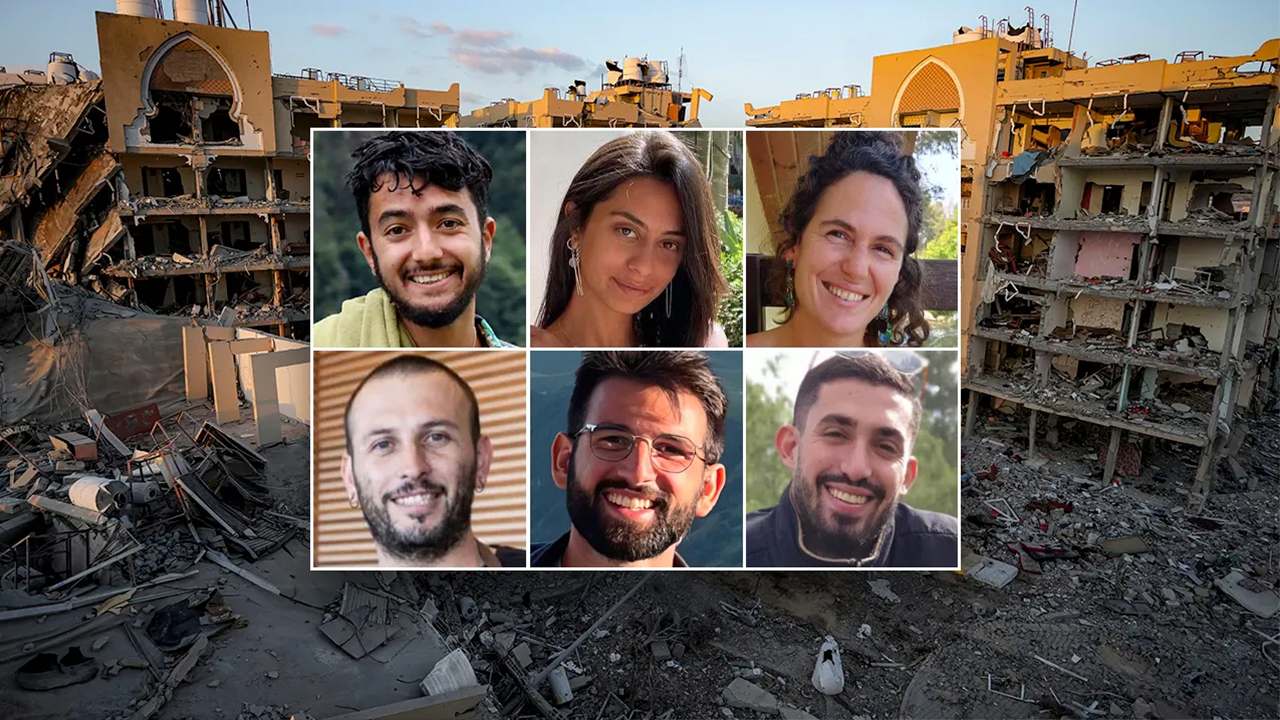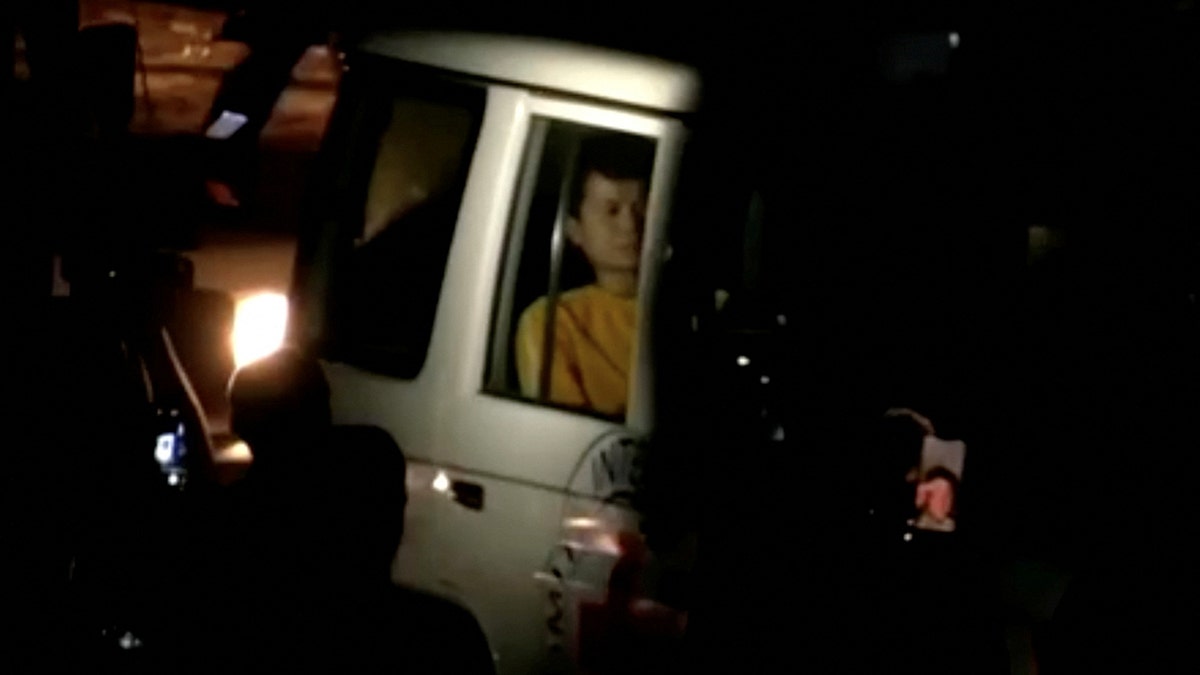It's no secret that the world is watching as the situation in Gaza continues to escalate. Hamas hammered until hostages free has become a rallying cry for many nations, but what exactly does this mean? The ongoing conflict between Israel and Hamas has dominated global headlines, and it's crucial to understand the intricacies of the situation. As tensions rise, the international community is calling for an immediate resolution to ensure the safety of hostages and civilians alike.
Picture this: you're scrolling through your newsfeed, and every other story talks about airstrikes, negotiations, and the growing humanitarian crisis. It's overwhelming, right? But let's break it down. The phrase "Hamas hammered until hostages free" isn't just a catchy headline—it represents the determination of countries worldwide to bring an end to this conflict and secure the release of innocent people caught in the crossfire. This isn't just about politics; it's about lives.
So, why should you care? Because this isn't just happening "over there." The ripple effects of this conflict touch every corner of the globe. From oil prices to international relations, the implications are vast. As we dive deeper into this topic, we'll explore the history, the current state of affairs, and what the future might hold. Buckle up, because it's going to be a bumpy ride.
Read also:Delving Into The Rumors Did Crystal Lust Die Unraveling The Truth
Understanding the Roots of the Conflict
To truly grasp the significance of "Hamas hammered until hostages free," we need to take a step back and examine the origins of the conflict. This isn't a recent development; it's a decades-long struggle rooted in historical, religious, and territorial disputes. Both sides have valid claims, but the reality is that civilians are often the ones who suffer the most.
Let's rewind a bit. The Israeli-Palestinian conflict began in the early 20th century, with competing claims over the land that is now Israel and the Palestinian territories. Fast forward to today, and you'll see a complex web of alliances, grievances, and power struggles. Hamas, an Islamic militant group, has been at the center of this storm for years. Their actions, including rocket attacks and kidnappings, have drawn international condemnation, but they also claim to represent the Palestinian people's fight for justice.
Who is Hamas Anyway?
A Brief Biography of Hamas
Hamas, short for Harakat al-Muqawama al-Islamiya (Islamic Resistance Movement), was founded in 1987 during the First Intifada. Initially, they focused on social services and education, but over time, their political and military wings grew more prominent. Today, they control Gaza Strip, a densely populated area that's been under Israeli blockade for years.
Here's a quick breakdown of their leadership:
| Name | Role | Background |
|---|---|---|
| Ismail Haniyeh | Prime Minister of Gaza | A charismatic leader who rose through the ranks of Hamas |
| Moussa Abu Marzouk | Deputy Chairman of Hamas Political Bureau | A key figure in Hamas's external relations |
| Ahmed Jabari | Former Chief of Hamas Military Wing | Assassinated by Israel in 2012 |
The Hostage Situation: A Humanitarian Crisis
Now, let's talk about the elephant in the room—the hostages. The phrase "Hamas hammered until hostages free" highlights the urgency of this issue. Civilians, including women and children, have been taken captive during the recent surge in violence. This has sparked outrage and calls for action from governments and humanitarian organizations worldwide.
But here's the kicker: freeing hostages isn't as simple as it sounds. Negotiations are delicate, and both sides are wary of making concessions that could be perceived as weakness. Meanwhile, the hostages remain in limbo, their fates uncertain. The international community is urging restraint and dialogue, but emotions are running high.
Read also:Sophie Rain Spiderman Vid Everything You Need To Know
International Response and Sanctions
How the World is Reacting
As the conflict intensifies, countries around the world are stepping up their responses. Sanctions, diplomatic pressure, and humanitarian aid are all on the table. For example, the United States has been a staunch ally of Israel, providing military and financial support. Meanwhile, other nations, like Turkey and Qatar, have offered to mediate talks between Israel and Hamas.
But sanctions alone won't solve the problem. The key lies in addressing the root causes of the conflict. This means tackling issues like poverty, unemployment, and lack of access to basic necessities in Gaza. It's a tall order, but one that can't be ignored.
The Role of Media in Shaping Public Opinion
Media plays a crucial role in how we perceive global events. When it comes to "Hamas hammered until hostages free," the narrative can vary depending on the source. Some outlets focus on the humanitarian crisis, while others emphasize the political and military aspects. It's important to consume news from multiple perspectives to get a well-rounded understanding.
And let's not forget social media. Platforms like Twitter and TikTok have become hotbeds for real-time updates and opinions. While this democratizes information, it also opens the door to misinformation. As consumers, we need to be discerning and fact-check before sharing.
Humanitarian Aid and Relief Efforts
What's Being Done to Help?
Amidst the chaos, there are glimmers of hope. Humanitarian organizations are working tirelessly to deliver aid to those in need. From food and water to medical supplies, every little bit helps. However, the challenge lies in getting these resources into Gaza without compromising security.
Here are some of the organizations making a difference:
- UNRWA (United Nations Relief and Works Agency)
- Red Cross
- Oxfam
- Médecins Sans Frontières (Doctors Without Borders)
If you're looking to contribute, consider donating to these reputable groups. Every dollar counts, and your support can make a tangible difference in someone's life.
The Economic Impact of the Conflict
While the human cost of the conflict is undeniable, there are also significant economic repercussions. Trade routes are disrupted, businesses are forced to shut down, and investors are wary of putting money into the region. This affects not only the immediate area but also global markets.
For instance, oil prices have been volatile due to concerns about supply chain disruptions. This, in turn, impacts industries worldwide. It's a domino effect that highlights just how interconnected our world is.
What Does the Future Hold?
As we look ahead, the question on everyone's mind is: what's next? Will the pressure on Hamas to release hostages lead to a breakthrough? Or will the cycle of violence continue? It's impossible to predict with certainty, but one thing is clear—the status quo isn't sustainable.
Efforts to establish a lasting peace agreement will require compromise and cooperation from all parties involved. This won't happen overnight, but it's essential for the long-term stability of the region.
How You Can Get Involved
Taking Action Beyond the Screen
If you're feeling overwhelmed by the news, remember that you have the power to make a difference. Whether it's through volunteering, donating, or simply spreading awareness, every action matters. Here are a few ideas to get you started:
- Support local charities working in conflict zones
- Engage in peaceful protests and advocacy
- Educate yourself and others about the issues
- Encourage your representatives to prioritize diplomacy
Together, we can create a world where phrases like "Hamas hammered until hostages free" are relics of the past rather than current events.
Conclusion
As we wrap up this deep dive into the situation surrounding "Hamas hammered until hostages free," it's clear that this is a multifaceted issue with no easy answers. From historical roots to modern-day challenges, the conflict in Gaza is a testament to the complexities of international relations.
But amidst the chaos, there's hope. By staying informed, supporting humanitarian efforts, and advocating for peace, we can all play a part in creating a brighter future. So, what will you do today to make a difference? Leave a comment below, share this article, or start a conversation with someone in your community. The power to change the world starts with you.
Table of Contents
- Understanding the Roots of the Conflict
- Who is Hamas Anyway?
- A Brief Biography of Hamas
- The Hostage Situation: A Humanitarian Crisis
- International Response and Sanctions
- How the World is Reacting
- The Role of Media in Shaping Public Opinion
- Humanitarian Aid and Relief Efforts
- What's Being Done to Help?
- The Economic Impact of the Conflict
- What Does the Future Hold?
- How You Can Get Involved
- Taking Action Beyond the Screen
- Conclusion


